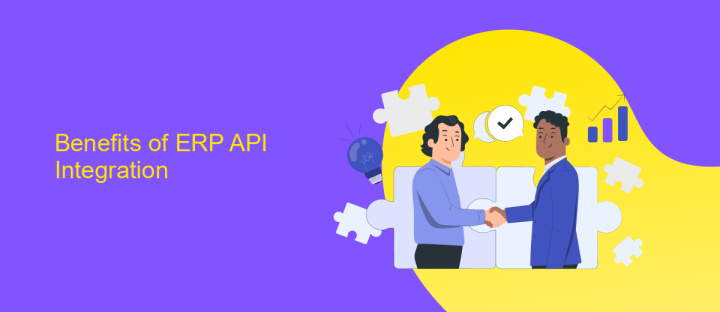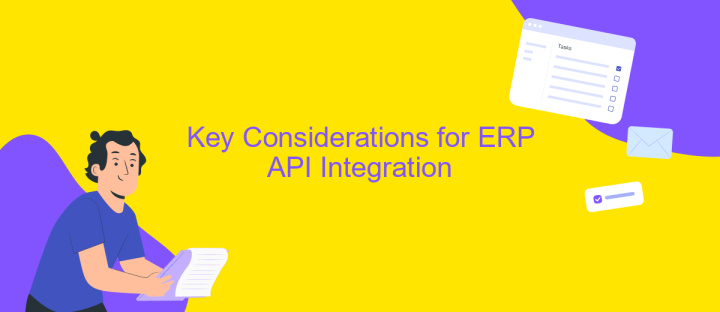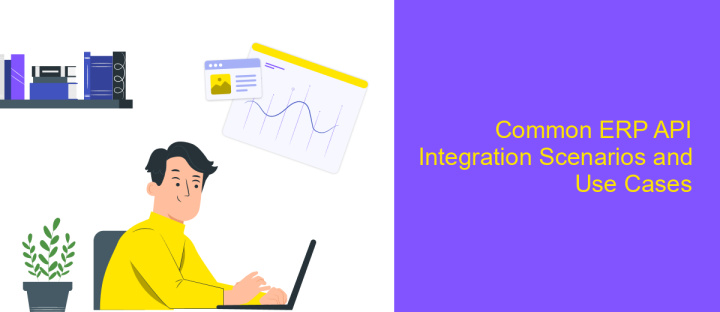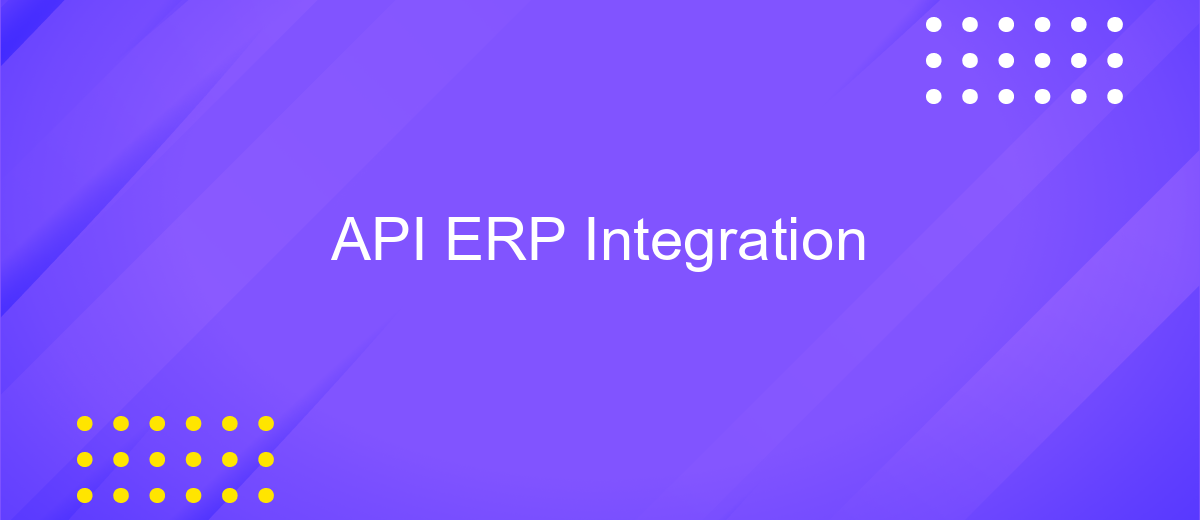API ERP Integration
In today's rapidly evolving business landscape, integrating Enterprise Resource Planning (ERP) systems with Application Programming Interfaces (APIs) has become essential for optimizing operational efficiency. This seamless integration allows businesses to automate processes, improve data accuracy, and enhance decision-making capabilities. By leveraging API ERP integration, companies can streamline workflows, reduce manual errors, and gain a competitive edge, ultimately driving growth and innovation in their respective industries.
Understanding ERP and API Integration Fundamentals
Enterprise Resource Planning (ERP) systems are comprehensive software platforms used by organizations to manage and integrate crucial business processes. These systems centralize data, streamline operations, and provide real-time insights, enhancing decision-making and efficiency. However, to maximize their potential, ERPs often need to communicate with other software applications, which is where API integration plays a vital role.
- Data Synchronization: APIs enable seamless data exchange between ERP systems and other applications, ensuring consistent and up-to-date information across platforms.
- Process Automation: By integrating APIs, businesses can automate routine tasks, reducing manual effort and minimizing errors.
- Scalability: API integration allows ERPs to easily scale by connecting with new tools and technologies as business needs evolve.
- Enhanced Functionality: APIs extend the capabilities of ERP systems by incorporating features from specialized third-party applications.
Understanding the fundamentals of ERP and API integration is crucial for businesses aiming to optimize their operations. By leveraging APIs, organizations can enhance the functionality of their ERP systems, improve data accuracy, and achieve greater operational efficiency. This strategic integration not only supports growth but also ensures that businesses remain agile and responsive in a rapidly changing environment.
Benefits of ERP API Integration

Integrating APIs with ERP systems offers significant advantages, enhancing operational efficiency and streamlining processes. By enabling seamless data exchange between disparate systems, ERP API integration reduces manual data entry, minimizing errors and saving valuable time. This connectivity allows businesses to maintain real-time data accuracy, providing a comprehensive overview of operations and facilitating informed decision-making. Furthermore, ERP API integration supports scalability, allowing organizations to effortlessly expand functionalities and adapt to evolving business needs without overhauling existing systems.
Utilizing platforms like ApiX-Drive can simplify the integration process, offering user-friendly tools to connect various applications without extensive coding knowledge. This service empowers businesses to automate workflows, ensuring that data flows smoothly across systems, enhancing productivity and collaboration. By leveraging such integration solutions, companies can focus on core business activities while ensuring their ERP systems are fully optimized and aligned with strategic objectives. Ultimately, ERP API integration not only boosts operational efficiency but also provides a competitive edge in today's fast-paced business environment.
Key Considerations for ERP API Integration

When integrating APIs with ERP systems, it's crucial to consider various factors to ensure seamless connectivity and functionality. Proper planning and understanding of the integration landscape can significantly impact the success of the project.
- Compatibility: Ensure that the API and ERP systems are compatible in terms of data formats, protocols, and versions.
- Security: Implement robust security measures, including authentication, authorization, and encryption, to protect sensitive data.
- Scalability: Consider the scalability of the integration to accommodate future growth and increased data volumes.
- Data Integrity: Maintain data integrity by ensuring accurate and consistent data exchange between systems.
- Documentation: Comprehensive documentation is essential for understanding API capabilities and troubleshooting issues.
By addressing these key considerations, organizations can enhance their ERP API integration efforts, leading to improved operational efficiency and data accuracy. Properly integrated systems facilitate better decision-making, streamlined processes, and a more agile business environment. Ultimately, thoughtful planning and execution of ERP API integration can drive significant value and competitive advantage.
Common ERP API Integration Scenarios and Use Cases

ERP systems are vital for streamlining business processes, and integrating them with other applications via APIs enhances their functionality. Common integration scenarios involve connecting ERP systems with e-commerce platforms, CRM systems, and supply chain management tools. These integrations ensure seamless data flow and improve operational efficiency.
API integrations enable businesses to automate data exchange, reducing manual entry and minimizing errors. They also facilitate real-time data access, allowing stakeholders to make informed decisions promptly. Additionally, these integrations can be customized to meet specific business needs, offering flexibility and scalability.
- E-commerce Integration: Synchronize inventory, orders, and customer data between ERP and online stores.
- CRM Integration: Align customer relationship management with ERP for unified customer insights.
- Supply Chain Integration: Enhance logistics and inventory management by connecting ERP with supply chain solutions.
- Financial Systems Integration: Streamline financial reporting and analysis by linking ERP with accounting software.
These use cases highlight the transformative potential of ERP API integrations. By leveraging these scenarios, businesses can enhance productivity, reduce costs, and improve customer satisfaction. As technology evolves, the scope for ERP API integrations will continue to expand, offering even more opportunities for optimization.


Best Practices and Future Trends in ERP API Integration
Implementing best practices in ERP API integration is crucial for optimizing business processes and ensuring seamless data flow. Prioritizing security through robust authentication and encryption protocols is essential to protect sensitive data. Additionally, adopting a modular approach allows for scalable and flexible integrations, accommodating future business needs. Utilizing comprehensive documentation and testing frameworks can significantly reduce errors and streamline the development process. Leveraging tools like ApiX-Drive can simplify the integration process by offering a user-friendly platform to connect various applications without extensive coding, enhancing efficiency and reducing time to deployment.
Looking ahead, the future of ERP API integration is poised to be shaped by emerging technologies and evolving business requirements. The rise of artificial intelligence and machine learning will enable more intelligent and predictive integrations, offering deeper insights and automation capabilities. Furthermore, the increasing adoption of cloud-based solutions will drive the need for more agile and scalable integration strategies. As businesses continue to embrace digital transformation, API integration will remain a critical component, facilitating innovation and fostering a more connected and responsive enterprise environment.
FAQ
What is ERP API Integration and why is it important?
How does API integration enhance ERP functionality?
What are the common challenges in ERP API Integration?
How can businesses ensure the security of their data during ERP API Integration?
What tools or platforms can assist with ERP API Integration?
Apix-Drive is a universal tool that will quickly streamline any workflow, freeing you from routine and possible financial losses. Try ApiX-Drive in action and see how useful it is for you personally. In the meantime, when you are setting up connections between systems, think about where you are investing your free time, because now you will have much more of it.

